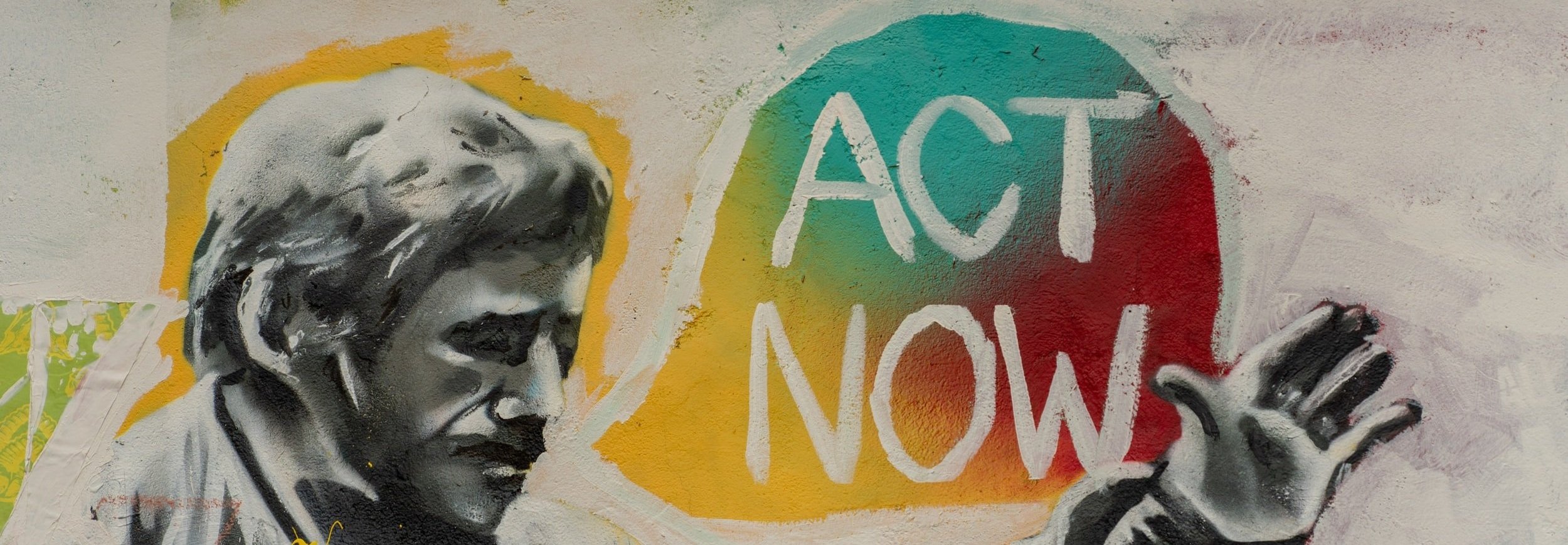Why You Should Abandon All Hope… to Save the World.
Yeah, it’s a catchy title, I admit it. And, no I’m not gonna tell you that we’re doomed and that there is no hope left for the world. In fact, I believe and data suggests that quite the opposite is true.
I simply want to encourage you to think a little bit about the concept of hope, and what hope means to you - or more accurately - how you make or do not make use of it in your everyday life.
What Is Hope?
If you look up the Oxford Dictionary definition of hope you’ll finde something like:
“Hope is a feeling of expectation and desire for a particular thing to happen.”
Desire… feeling… trust... All of them sound good, right? What’s my issue with hope? Why am I suggesting to abandon it? Well, let’s take a the definition apart and look at the pieces:
Hope is a feeling: Feelings are important. Feelings make us feel alive, feelings inspire us, feelings are what everything is about. But, a feeling does not automatically translate into action. It’s simply an emotional state. And, as every emotional state it either fades or comes back but it’s not persistent.
Hope is an expectation: Expectations are deeply personal and purely hypothetical. They don’t exist anywhere but in your mind. In Buddhist philosophy the attachment to expectations is seen as one of the big contributors to suffering. We often only suffer because something is not as we expect it - or hoped for it - to be,
Hope is desire: Desire always carries emotional attachment.
What Hope Is Not!
But, more importantly, it’s not what this definition includes but what it doesn’t include: action.
Just think about it. There is basically two cases in which we use the concept of hope.
You only say, “I hope Janett will get the job,” when you wish for it to happen but don’t intend to do anything about. Otherwise, you’d say “I’ll help Janett get the job,” or ask yourself how you can help. So, in some sense hope is kinda something that you detach yourself from.
Sure, there are moments where we use the concept of hope when we really want to do something about it but feel that our hands are tied. “I hope that Mike will overcome his drug addiction,” is one example. But notice again that hope has nothing to do with action here.
A Better Understanding of Hope
In summary, one can say that
“hope is an emotional attachment for something to happen. Hope itself does not imply action.”
So, if we don’t pair hope with action,
“hope becomes an empty shell in which all the problems lie that we deem important but for which we don’t want to take action and responsibility.”
Ouch, right? Hope doesn’t sound that good anymore. Especially when we are emotionally attached to them but don’t take responsibility for them that sounds like we lose control over own emotional well-being.
The Implications of Understanding Hope
So, this means that there are only two healthy ways to deal with hope:
You either abandon hope to save yourself from emotional harm, or
You take responsibility and action to ensure that you and the world moves closer towards the particular thing you care about.
And, the first option is not always bad. You cannot take responsibility for everything, you need to choose wisely what you’re gonna do with your time and energy. And, wasting it on attachment to something that you don’t take responsibility for doesn’t sound good to me.
The second option sounds exciting. When you understand hope, you can take responsibility for shaping the world and inspiring others to find the hope that you found. And, if you believe that it’s important to contribute to saving the world (or as you would’ve said before reading this post: you hope the world will be saved), you can start with very easy steps:
Only use “hope” in an active and self-relating way. Instead of saying “I hope the world will be saved,” say “I hope I can contribute to saving the world.” There you have something you can own!
Catch yourself using the word “hope.” I abandoned the word hope all together. If I catch myself saying that “I hope to get this done,” I first start thinking if I honestly care enough about the particular thing that I want to take responsibility for it. And. if the answer is yes, I rephrase the sentence to “I will do X to get his done.”
Do a small thing that makes a difference. Rather than hoping for the oceans to be clean, decide to not use a straw for your next soft drink. Sure, a small action doesn’t make a big difference but it makes a small difference. One vote might not count if the outcome of an election can only turn one way or the other but one fewer straw in the ocean is a slightly cleaner planet.
By hoping less and doing more - even very small things - you contribute to a better tomorrow. That’s for sure. So, if you hope for a happier world, go smile at people. If you hope for a cleaner world, pick up some trash you find on the side walk. Whatever you hope for, do something small towards it. <3 Thank you!
Side Note: An Archaic Understanding of Hope
A slightly different way to think about hope lies in an older definition of the word itself:
“Hope is a feeling of trust.”
If hope is so strongly related to trust, you should only hope for things that you trust are good and that you trust will happen. If you don’t have that trust, you shouldn’t put hope into it. In the interesting case where you trust that something is good but you don’t trust that it’ll happen, you have the amazing opportunity to take responsibility for it and make it (more likely to) happen.
Teddy Lange is cool. He loves exploring the world and its beauty. He has a passion for people and philosophy which led him to over 30 countries and no one knows to how many books. He couldn’t decide between a chemistry, business, or politics major; so, he did all of them. His dream is to save the world together with you, which is why he co-founded Cordial Credit with Krzysiek, who is also cool. He honestly loves to her from you. How do I know this? Because I’m him, writing in third person. Shoot me an e-mail: teddy@cordialcredit.org




